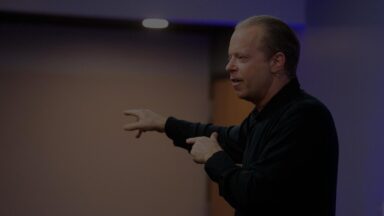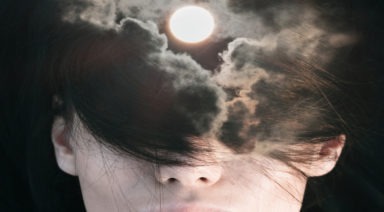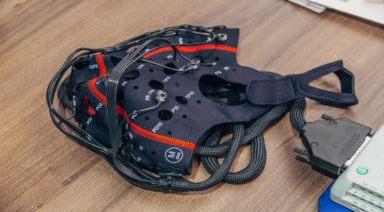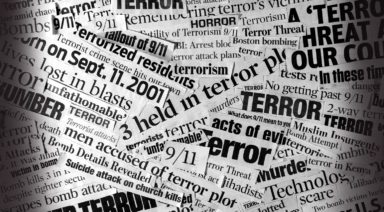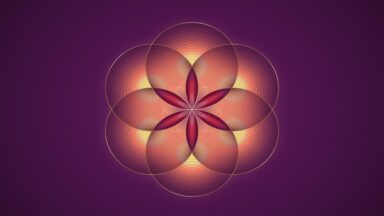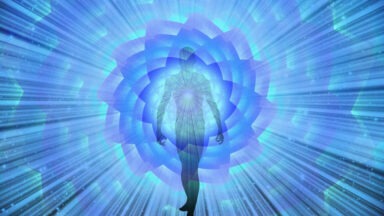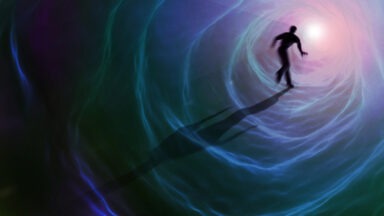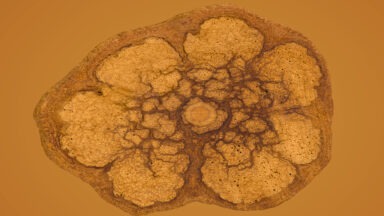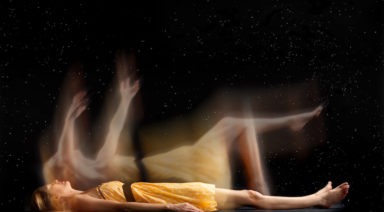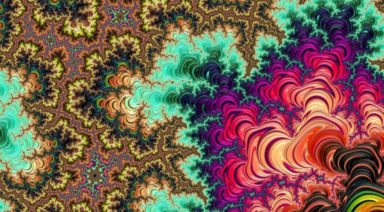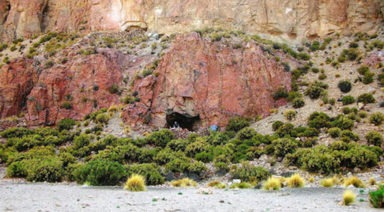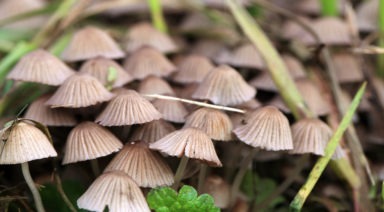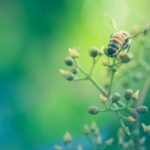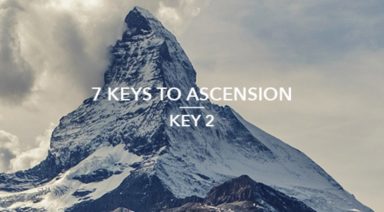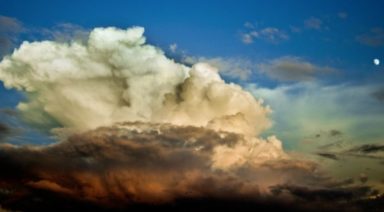Micro-Dosing Psychedelics Appears to Boost Creativity Says Study
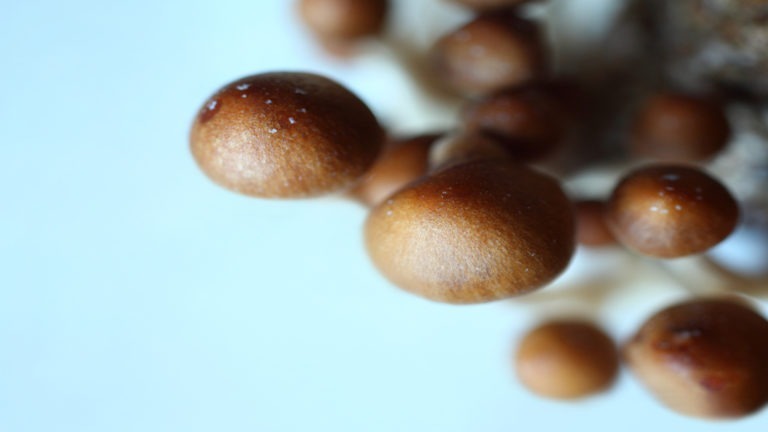
The benefits of micro-dosing psychedelics, such as psilocybin, might have found validity in a recent FDA-approved study conducted by the London-based, Compass Pathways. After administering small doses of psilocybin, the psychoactive ingredient in “magic mushrooms,” subjects were given tests to analyze creative thought and normal cognitive function.
The study found that the micro-dose improved creativity and had no negative effect on day-to-day cognitive function, including rational thinking, problem-solving, and abstract-reasoning.
The subjects were given an average .37 grams of dried mushrooms three days a week, followed by cognitive tests 90 minutes after consumption. As reported by Scientific American, one psychologist involved in the study, Dr. Bernhard Hommel of the Netherlands’ Leiden University said, “performance was significantly higher,” on tests of convergent and divergent thinking –two measures of analytical and creative thinking.
The study was conducted after a trend of anecdotal evidence from Silicon Valley execs and creatives who have used psilocybin and LSD in diminutive doses on a regular basis to boost creative thought, supplant caffeine, and generally increase mental performance.
Studies by Dr. Robin Carhart-Harris at London’s Imperial College have made leaps and bounds studying the benefits psychedelics can provide sufferers of depression and drug addiction, while also breaking down antiquated taboos from the drugs’ history.
One of the recent discoveries of Carhart-Harris and the team involved psychedelics’ effect on the Default Mode Network (DMN), a series of brain regions connected with ego, thought, and emotion. The DMN is the daydreaming “default” mode our brains go into when they have nothing to focus on. The study found that when psychedelics were administered, the DMN quieted down, supporting the feeling of “ego-dissolution” often reported by psychedelic users.
They also noticed that the default mode network plays a role in the strict connections our brains make that reinforce behavior and thought; essentially what hampers creativity. But when psychedelics were introduced, the brain opened up it’s thinking to drastically more possibilities, leading to greater creativity but also temporary false conclusions about what it was seeing – the mechanism behind hallucinations.
But now it seems that with micro-doses, those myriad possibilities in the thought process may be accessed without the trip, sans hallucinations. Our brains form rigid connections as we get older, creating ‘shortcuts’ in order to easily comprehend and react with everything life throws our way. But at the same time, those connections inhibit creative thought, keeping us set in our ways. But what Carhart-Harris et al. hypothesized is that psychedelics break down those connections and open up new ones, allowing creative “out-of-the-box” thinking. And that’s what this study focused on; instead of one intense, paradigm-shattering trip, could a regiment of imperceptible daily doses do the same?
Psilocybin targets 5-HT receptors in the brain which are responsible for regulating serotonin. These receptors are known to influence reflective thought, introspection, and imagination. They are also the target of migraine and cluster headache medications, which some sufferers have found can be replaced with a more effective dose of psilocybin. In addition to serotonin, psilocybin also increases the concentration of the neurotransmitter dopamine, which is thought to mediate desire and motivation.
Of course, this was a single trial in which the placebo effect could have played a role, warranting more placebo-controlled iterations of the study. It was also posted as a preprint, meaning it has yet to be put through the rigors of peer-review. But if their findings and method were valid, it seems that psychedelics could give that creative boost many seek.
Joe Dispenza, the Doctor Who Teaches How to Reprogram the Mind
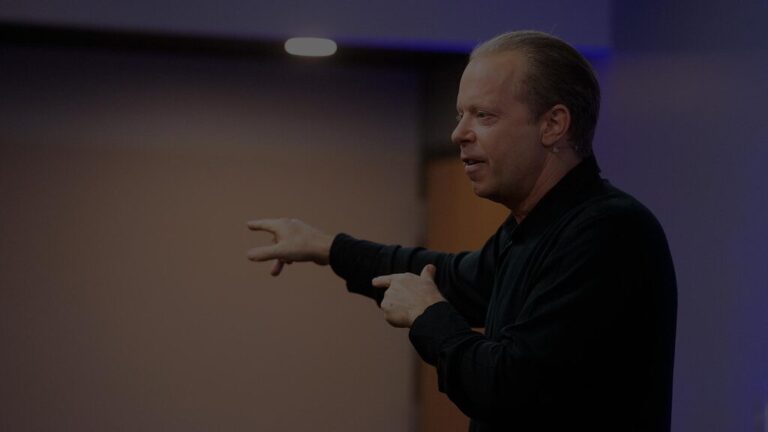
The ability to transform our lives through the reprogramming of our minds is an idea that has gained popularity in recent years, and Dr. Joe Dispenza is one of the leading proponents of this philosophy. With a personal story of overcoming adversity and a solid scientific background, Dispenza has become an influential figure in the field of personal development. In this article, we explore his life, his teachings, and the experiences that led him to this position.
Table of Contents
- Who Is Dr. Joe Dispenza?
- The Accident That Changed His Life
- Dr. Joe Dispenza’s Core Teachings
- Three Books to Understand Dr. Joe Dispenza
- The Global Impact of Dr. Joe Dispenza
Who Is Dr. Joe Dispenza?
Joe Dispenza is an American author, speaker, and chiropractor known for his research and teachings in the field of neuroscience as applied to personal development. He has written several books and offers seminars and workshops around the world, teaching people how to change their thinking to transform their reality. His approach combines neuroplasticity, epigenetics, and quantum physics to provide a practical guide to self-transformation.
Dispenza gained recognition after appearing in the 2004 documentary “What the Bleep Do We Know!?”, where he presented his ideas about the mind-body connection. Since then, he has continued researching and expanding his methods, helping thousands of people through his programs and publications. His ability to integrate scientific concepts with practical techniques has resonated widely, attracting a global audience interested in personal growth and healing.
In addition to his books and seminars, Joe Dispenza is known for his series Rewired on Gaia, where he explores how to reprogram the brain and the body to achieve a fuller, healthier life. Through 13 episodes, Dispenza guides viewers through practices like meditation, visualization, and other techniques to activate their potential and experience meaningful transformation.
The Accident That Changed His Life
In 1986, Joe Dispenza suffered a serious bicycle accident during a competition in Palm Springs, California. He was hit by an SUV, resulting in multiple fractures in his spine. Doctors informed him that he would need high-risk surgery to stabilize his spine—with the possibility that he might never walk again.
Faced with this situation, Dispenza decided to reject surgery and embark on a journey of self-healing. He used visualization and meditation techniques to imagine his spine healing and fusing together again. He spent hours each day focusing his mind on reconstructing his vertebrae and fully recovering his mobility.
Over nine weeks of intense mental practice, Dispenza began to notice significant improvements in his condition. Against all medical predictions, he was able to stand up and walk again without surgical intervention. This transformative experience solidified his belief in the power of the mind to influence the body and motivated him to share his discoveries with others.
Dispenza’s recovery process not only restored his mobility, but also gave him a completely new perspective on the mind’s ability to affect physical reality. Determined to understand and explain this phenomenon, he committed himself to studying neuroscience, epigenetics, and related fields in depth.
Since then, Joe Dispenza has dedicated his life to researching and teaching how people can use the power of their minds to heal and transform their lives. His methods, rooted in both science and spirituality, have resonated with a global audience, attracting thousands of followers to his seminars, workshops, and online programs.
Dr. Joe Dispenza’s Core Teachings
Joe Dispenza teaches that our thoughts and emotions have a direct impact on our biology and on the reality we experience. According to Dispenza, changing our thought patterns can alter our physical reality. This idea is based on neuroplasticity—the brain’s ability to reorganize itself and form new neural connections in response to new thoughts and experiences. By adopting positive thoughts and emotions, Dispenza suggests we can transform our lives and overcome self-imposed limitations.
Another key teaching from Dispenza is the importance of living in the present moment to create a new reality. According to him, many people are trapped in the past, repeating the same thoughts and emotions that perpetuate the same experiences. Dispenza promotes the practice of meditation and mindfulness to free the mind from these repetitions and open up to new possibilities. By focusing on the present, one can shift the energy of both body and mind, facilitating a state of creation rather than reaction.
Dispenza also emphasizes the connection between body and mind through heart coherence. He teaches that by achieving a state of heart coherence—where the heart rate synchronizes with positive emotional states—healing processes in the body can be activated. Through breathing and visualization techniques, individuals can reach this state of coherence, improving their overall health and well-being. This interconnection between the mind, heart, and body is fundamental to the self-transformation that Dispenza advocates.
Three Books to Understand Dr. Joe Dispenza
To fully understand Joe Dispenza’s approach, it’s essential to read his most influential books: “Breaking the Habit of Being Yourself,” “You Are the Placebo,” and “Becoming Supernatural.” Each of these works offers a unique perspective on how to reprogram the mind and transform life through neuroscience and epigenetics.
-
Breaking the Habit of Being Yourself
In Breaking the Habit of Being Yourself, Joe Dispenza explains how to change our thoughts and emotions to create a new reality. This book combines theory and practice, offering exercises and meditations that help readers break free from limiting habits and develop a new state of being.
-
You Are the Placebo
You Are the Placebo delves into the mind’s power to heal the body. Dispenza presents case studies and scientific evidence showing how beliefs and expectations can activate the body’s healing power. The book includes practical guides for using meditation and visualization as part of the healing process.
-
Becoming Supernatural
In Becoming Supernatural, Dispenza goes beyond physical and mental healing, exploring how to access elevated states of consciousness to transform reality. This book presents advanced meditation and visualization techniques, demonstrating how to apply these principles to achieve transcendental experiences and manifest extraordinary life changes. It’s complemented by a Gaia original series of the same name, which expands on the book’s teachings and goes even further.
The Global Impact of Dr. Joe Dispenza
Joe Dispenza’s innovative approach has had a significant global impact, transforming the lives of thousands of people. His seminars and workshops have expanded worldwide, creating a diverse and dedicated community that shares a common goal: self-transformation. Through his teachings, Dispenza has shown that it is possible to overcome self-imposed limitations and reach a state of physical, emotional, and mental well-being.
Dispenza’s influence extends across various platforms and formats, allowing his methods to reach people of all ages and backgrounds. His unique combination of science and spirituality continues to inspire many to explore the power of the mind and live more fulfilled, conscious lives. This global movement toward healing and personal growth stands as a testament to the transformative power of Joe Dispenza’s teachings.


